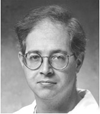If the story from New Jersey is bad, this story from the BBC is worse (1). It describes, in a low-key and matter of fact way, the story of how more than 600 organs harvested from dead donors (Britons) were transplanted into recipients who were not UK citizens. It seems that about 2% of the organs transplanted from dead-donors in the UK over the past 10 years went into these ‘private’ patients. In considering this story, it is important to postulate a few things:
1. The news article is brief, but the real story is likely enormous. We don’t know all of the details.
2. While it is certain that almost all of these organs were transplanted into recipients who have benefited from them, their allocation almost certainly took place outside of the ‘need’ based allocation system that was otherwise in place. The news article skirts this critical issue: it is very likely that organs were allocated to one recipient, and then diverted to another by the receiving transplant team.
3. It is unlikely that these recipients paid for the costs of their hospitalization. I may be wrong, but I do not believe that the NHS has any means of ‘billing’ private patients for these kinds of services. Once again, the BBC story is vague verging on obscuring, but it seems implausible that anyone but the transplant surgeon was paid for this ‘private’ service. The allusion to billing other EU healthcare systems in the future supports this suspicion.
4. It is highly likely that some centers have never performed a ‘private’ transplant. If this is the case, it means that other centers likely had a fairly active ‘private’ transplant business.
5. It is certain that there are other instances of ‘private’ transplantation that this inquiry did not discover. They may have missed 2% or they might have missed 200%. The incentive for the NHS is to downplay the numbers. That this inquiry was led by a former NHS official, and not by a sworn law enforcement officer, reveals that they wanted to sweep this under the rug, not shine the light of day on what transpired.
Why is the BBC story so understated? Because the real scope and magnitude of the story and the associated corruption is staggering. A few comments:
1. The tone of the inquiry is mild, verging on lapdog. ‘No evidence of wrongdoing’ Worse, no mention of how much money changed hands, or where it went. Reads more like a whitewash than an independent investigation to this foreigner. Once again, a serious inquiry would have required a more empowered and independent investigator. The individual commissioned by the NHS to conduct this inquiry likely had personal connections to many of those involved, and was a health care administrator, not a detective, inspector, or auditor.
2. There is no dispute that these international recipients paid someone for their transplant. How much money changed hands, and who got how much, is left unsaid.
3. Citizens who state a willingness to donate their organs generally do so with the understanding that their organs will be allocated to other participants in the system. In this case, donors expected that other Britons would get their organs. My guess is that none of them (deceased or their families) believed they were consenting for someone else to sell their organs.
4. Were these organs allocated by need? Almost certainly not. This is likely the most dangerous question in this essay. Given that over 600 of these procedures were liver transplants, that means that as many as 600 people had to wait at least a little bit longer for their turn. This compels the next question: how many people died waiting because an organ that might have gone into them went into a ‘private’ patient? What is the body count from this activity? The NHS should be able to ascertain who was on the list when, who might have gotten these organs, and what happened to them. While any number that you might generate from this activity would be a guess, a body count of 1 or 2 would justify the mildness of this report, whereas a body count of several hundred would appropriately generate outrage.
5. Once again, this is not an activity performed by a couple of rogue surgeons in a back-alley clinic. These transplants took place at major medical centers, and required the active participation of a host of physicians (hepatologists, intensivists), heavy utilization of hospital and scarce resources (pharmacy, blood bank), the active cooperation of the hospital administration itself. If you were to view this as a criminal enterprise, then the list of co-conspirators would encompass a significant percentage of the physicians and hospital administrators involved in transplantation in the UK. This is almost certainly the explanation for the very understated spin by the BBC. If everyone involved were disciplined, there might be almost no one left to do the clinical work.
6. The NHS is chronically short on operating room time, ICU beds, hospital beds, and consultant availability. The opportunity or indirect cost of the private transplant program is that it appropriated at least 600 OR days, 600 ICU days, thousands of ward bed days, and a host of other resources that were created for the use of the NHS. Has anyone bothered to count this cost?
7. The outside view is that government bureaucracy can track every penny and every widget. The reality is that tracking is extremely difficult, and opportunities for corruption abound, even in the NHS. The NHS pays all of its employees poorly, but gives them command of great resources. It should not surprise anyone that a black market for human organs might arise in the midst of such an environment.
8. The decision to ban private transplants altogether suggests that the NHS recognizes that it is incapable of managing some or all of the aspects of this activity(or unwilling).
There is no one or correct way to view the story that underlies this story in the BBC. It could be that this was another program that crept from a small and altruistic beginning into a heavy drain on NHS resources before it was reigned in. This spin is entirely consistent with the BBC story. Alternatively, you could contend that NHS physicians diverted (stole?) organs intended for transplant into Britons and sold them to foreigners. For all we know, real fortunes were made by a small number of the people involved. This would represent organlegging, with physicians as the leaders of this blackest of black markets. Sadly, the BBC story deprives us of the details to distinguish the former from the later.
1. http://news.bbc.co.uk/2/hi/health/8177826.stm
The comments to the first part of this post have flabbergasted me. Dr Mastromarino has received very long jail sentences after trials in 2 different states. If there had been any legitimate aspect of his activities, it is very unlikely that he would have faced any jail time at all. Additionally, instead of recruiting funeral homes hundreds of miles apart in different states (New York City, Rochester, New Jersey,and ,Philadelphia) it would have made more sense for him to recruit several dozen in the New York City area. Cadavers are everywhere, willing co-conspirators to his activities were apparently rare.
http://www.jo219.com/intlbronze/Selling-the-Dead-Funeral-Homes-Scavenge-Body-Parts-for-Big-Bucks.shtml
 Mitch Keamy is an anesthesiologist in Las Vegas Nevada
Mitch Keamy is an anesthesiologist in Las Vegas Nevada
 Andy Kofke is a Professor of Neuro-anesthesiology and Critical Care at the University of Pennslvania
Andy Kofke is a Professor of Neuro-anesthesiology and Critical Care at the University of Pennslvania
 Mike O'Connor is Professor of Anesthesiology and Critical Care at the University of Chicago
Mike O'Connor is Professor of Anesthesiology and Critical Care at the University of Chicago
 Rob Dean is a cardiac anesthesiologist in Grand Rapids Michigan, with extensive experience in O.R. administration.
Rob Dean is a cardiac anesthesiologist in Grand Rapids Michigan, with extensive experience in O.R. administration.
You must lead a very lonely and desparate life style.
You have nothing better to do about write about such nonsense.
I hope one day when you need a organ/bone you cannot get it.
let this rest already.
You are only trying to profit from this story.
Once again,
Dr Mastromarino tried to help people, he had to cut corners , but he did help people ME
stop sending me emails
Lisa
Posted by: Lisa | August 12, 2024 at 07:41 AM